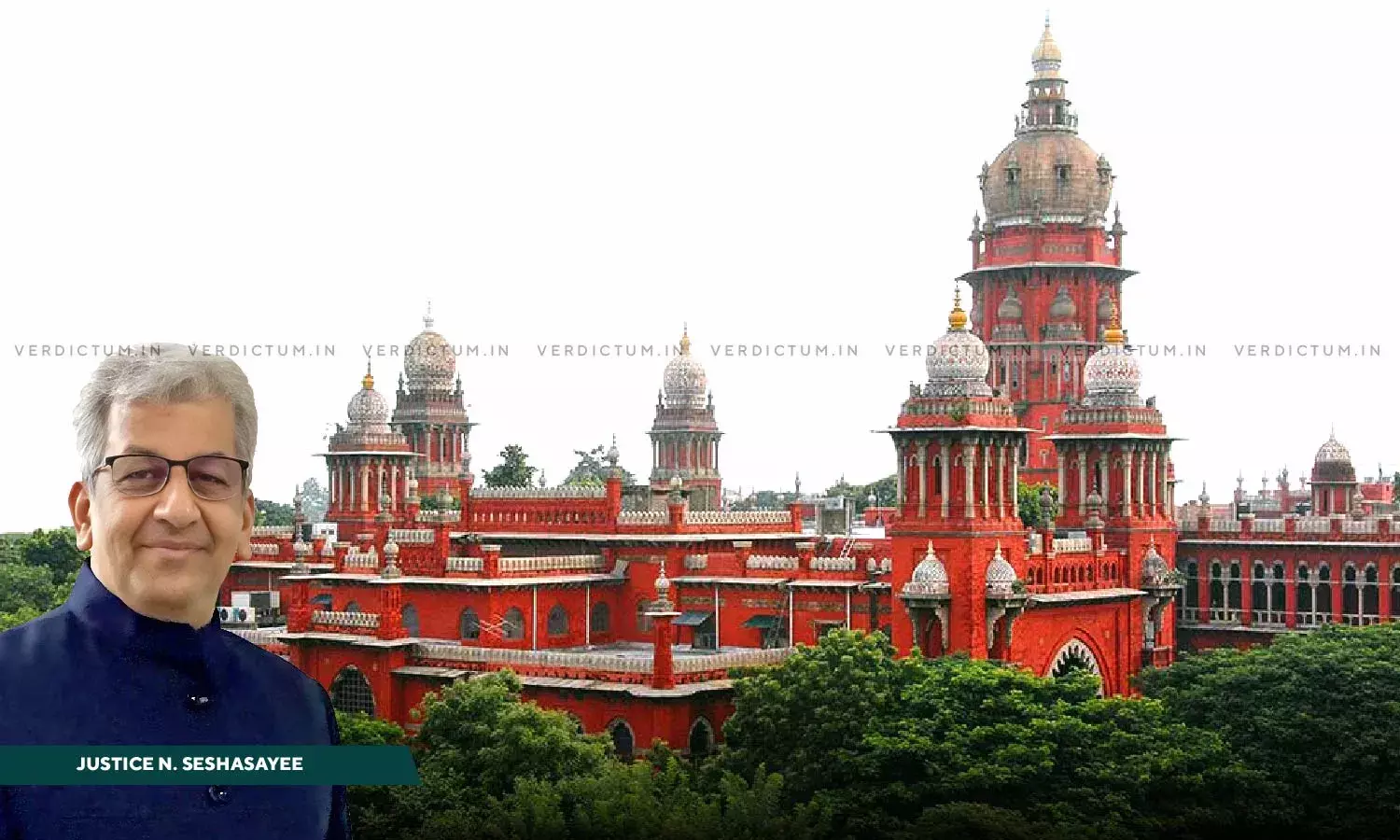Courts Must Refer To Quality Of Application Of Mind Involved In Granting Approval Of Prosecution U/S 17A PC Act: Madras HC

The Madras High Court has held that the Courts must refer to the quality of application of mind involved in granting approval under Section 17A of the Prevention of Corruption Act.
The Court quashed an FIR registered against the former Commissioner of Pallavaram Municipality under Sections 120-B, 406, and 409 of IPC and Section 13(2) read with 13(1)(c) of the Prevention of Corruption Act, 1988 (PC Act). The case revolved around allegations of financial irregularities in awarding contracts for municipal services during his tenure.
A Single Bench of Justice N.Seshasayee observed, “Therefore, the general rule that Court shall not look beyond the allegation in the FIR while considering a challenge to it may not be applicable to cases where 17A of the PC Act applies. In other words, whenever a FIR pertaining to offences which falls within the net of Sec.17A is challenged, the Court may have to, nay, must have to refer to the quality of application of mind involved in granting approval.”
Senior Advocate Ravi Anantha Padmanaban represented the Petitioner, while Additional Advocate General J. Ravindran appeared for the Respondent.
The FIR, registered by the Directorate of Vigilance and Anti-Corruption (DVAC), alleged that the Petitioner awarded contracts to a private company, without following proper tender procedures under the Tamil Nadu Transparency in Tenders Act, 1998. It was also alleged that bills were passed for services not rendered during school vacations, leading to a financial loss of Rs. 6.85 lakh to the municipality.
The Petitioner argued that the FIR was a result of a personal vendetta by the complainant, Anbalagan, a known blackmailer, who had previously faced criminal charges for similar offenses. It was further contended that the contracts in question were approved by the municipal council and that all procedures were duly followed. The Petitioner also claimed that his successor executed the payments after he had been relieved of his post.
The High Court emphasised the role of Section 17A of the Act, which mandates prior approval for investigations involving public servants. The Court noted that the approval granted did not have an application of mind, as the authority failed to consider relevant materials and documents submitted by the Petitioner, which could have disproven the allegations at the preliminary stage.
“When the Parliament intends that Sec.17A approval-proceedings is mandatory, the Court is only expected to give the kind of prominence which the legislature has envisaged, and the Court must refrain from becoming a super legislature to reduce Sec.17A to redundancy with its interpretations, merely because it has the power to iron out absurdities while interpreting a statute,” the Bench remarked.
“In construing the nature of the power exercised by the Government under Section 17-A there is no doubt that it is neither judicial nor quasi-judicial in character (as there is neither a lis involved nor does it affect any of the rights of the accused persons in praesenti). Thus, the power exercised by the Government is merely administrative in character. Nevertheless, it does not follow that merely because it is administrative in character the exercise of such power is outside the ken of judicial review,” the Bench explained.
Consequently, the Court held, “This Court is now constrained to form its opinion: the allegation in the FIR is wobbling, the quality of material placed before the Court by the Prosecution is unstable, and set in the circumstances the quality of approval is upsetting…The conclusion is to state the obvious. The petition is allowed, and the proceedings in FIR 2 of 2023 on the file of the respondent are quashed in so far as the petitioner is concerned.”
Accordingly, the High Court allowed the Petition.
Cause Title: K. Shiva Kumar v. State
Appearance:
Petitioner: Senior Advocate Ravi Anantha Padmanaban
Respondent: Additional Advocate General J. Ravindran; Government Advocate K.M.D.Muhilan

